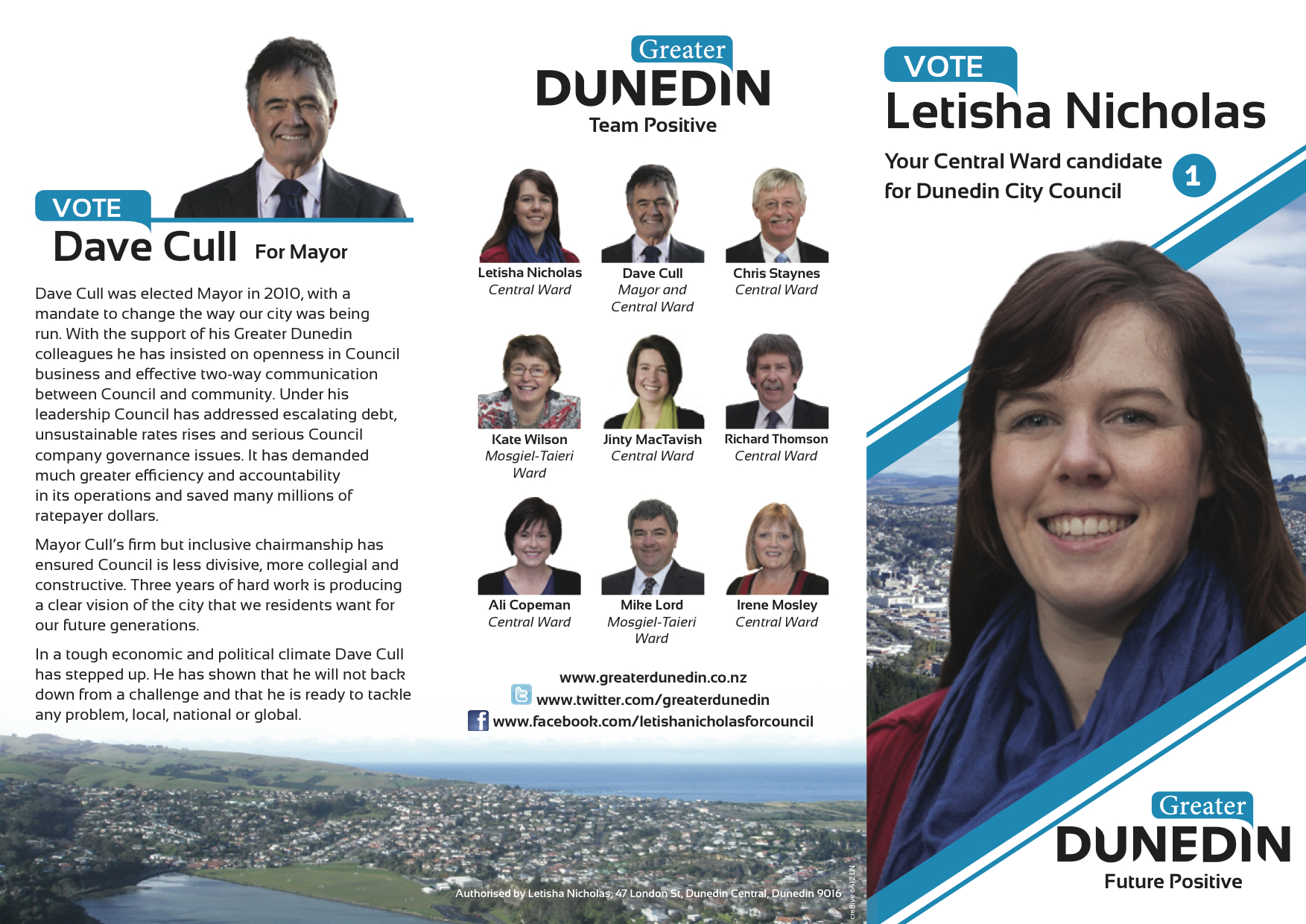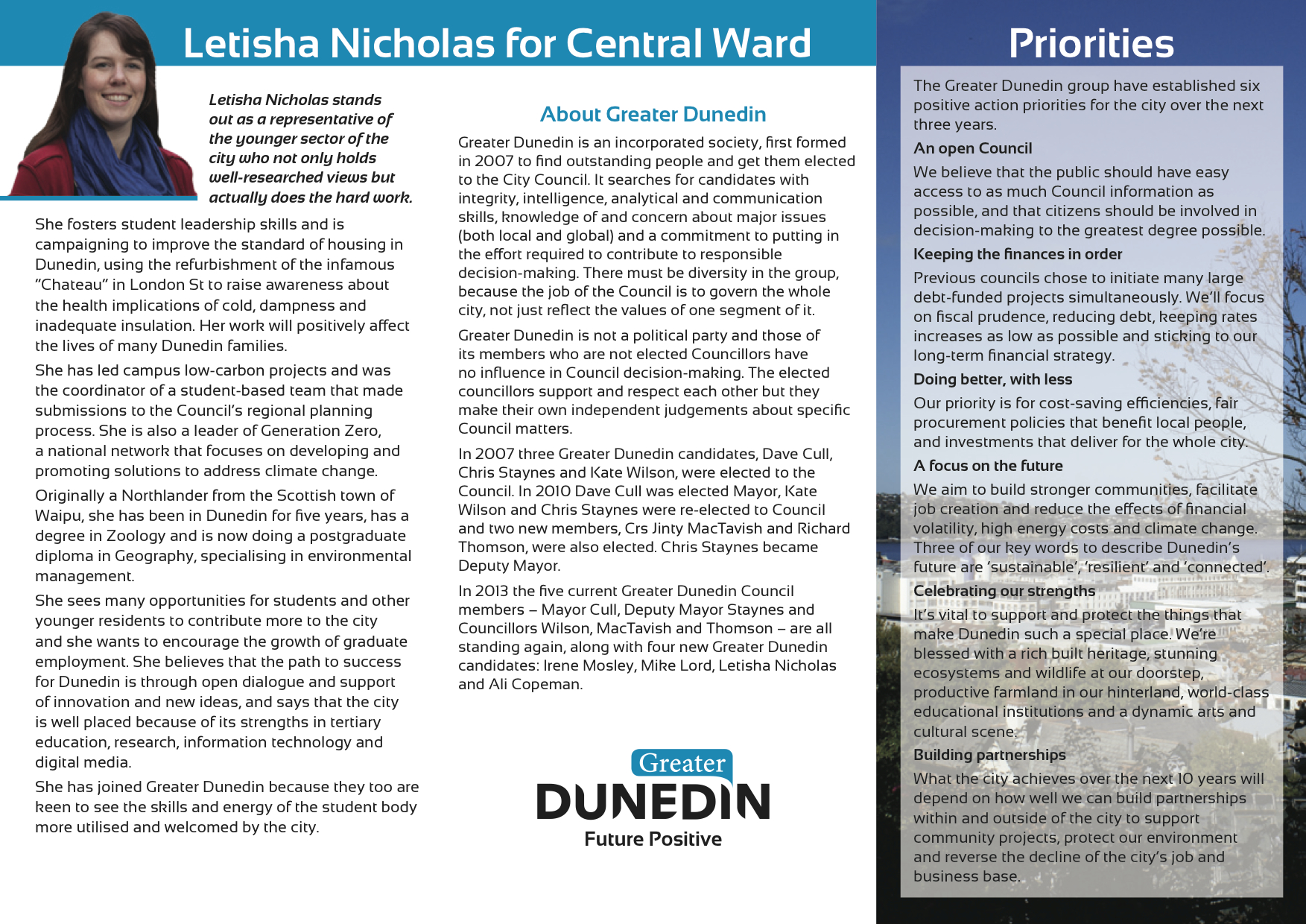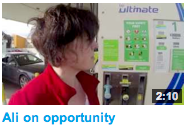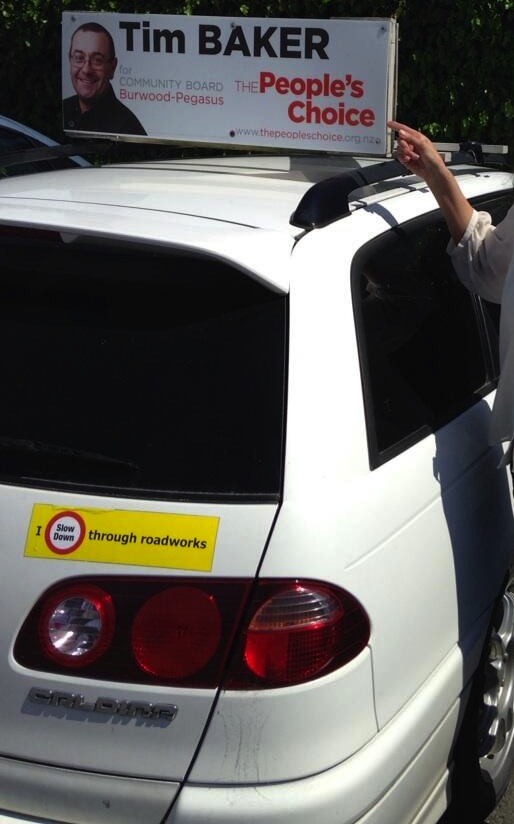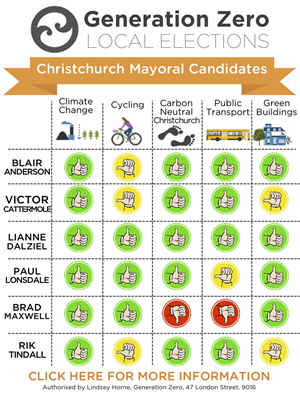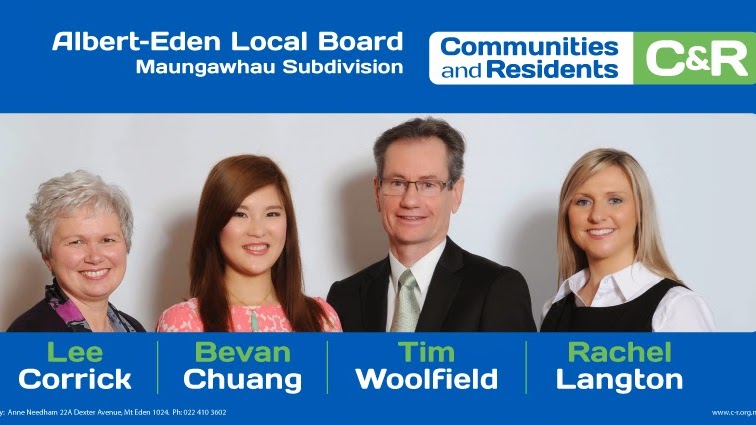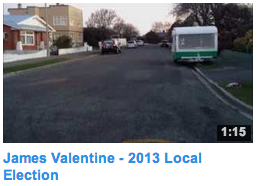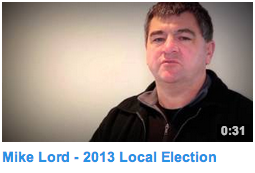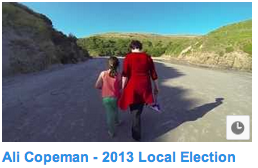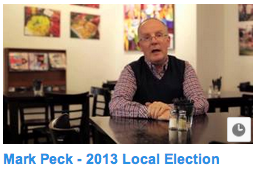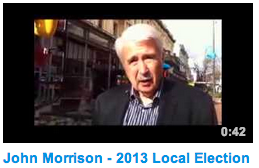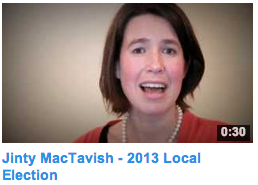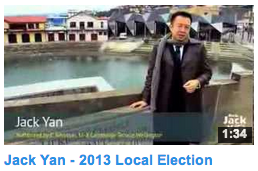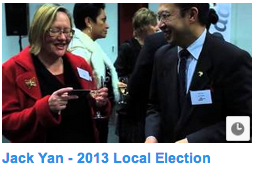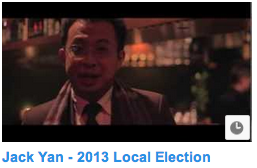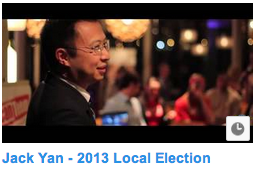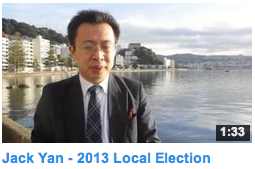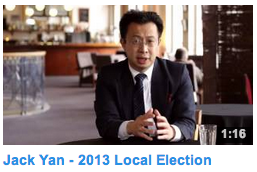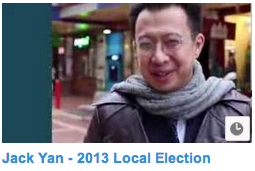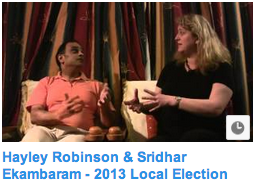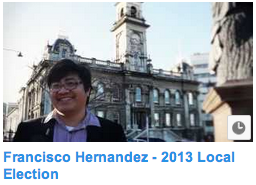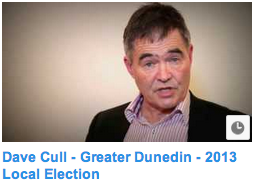Letisha Nicholas – Greater Dunedin – 2013 Local Election
Source: Greater Dunedin
Transcript (outside):
VOTE Dave Cull For Mayor
Dave Cull was elected Mayor in 2010, with a mandate to change the way our city was being run. With the support of his Greater Dunedin colleagues he has insisted on openness in Council business and effective two-way communication between Council and community. Under his leadership Council has addressed escalating debt, unsustainable rate rises and serious Council company governance issues. It has demanded much greater efficiency and accountability in its operations and saved many millions of ratepayer dollars.
Mayor Cull’s firm but inclusive chairmanship has ensured Council is less divisive, more collegial and constructive. Three years of hard work is producing a clear vision of the city that we residents want for our future generations.
In a tough economic and political climate Dave Cull has stepped up. He has shown that he will not back down from a challenge and that he is ready to tackle any problem, local, national or global.
Greater DUNEDIN Team Positive
Letisha Nicholas Central Ward Dave Cull Mayor and Central Ward Chris Staynes Central Ward Kate Wilson Mosgiel-Taieri Ward Jinty MacTavish Central Ward Richard Thomson Central Ward Ali Copeman Central Ward Mike Lord Mosgiel-Taieri Ward Irene Mosley Central Ward
www.greaterdunedin.co.nz
www.twitter.com/greaterdunedin
www.facebook.com/letishanicholasforcouncil
Authorised by Letisha Nicholas, 47 London St, Dunedin Central, Dunedin 9016
VOTE Letisha Nicholas
Your Central Ward candidate for Dunedin City Council
1
Greater DUNEDIN
Future Positive
Transcript (inside):
Letisha Nicholas stands out as a representative of the younger sector of the city who not only holds well-researched views but actually does the hard work.
She fosters student leadership skills and is campaigning to improve the standard of housing in Dunedin, using the refurbishment of the infamous “Chateau” in London St to raise awareness about the health implications of cold, dampness and inadequate insulation. Her work will positively affect the lives of many Dunedin families.
She has led campus low-carbon projects and was the coordinator of a student-based team that made submissions to the Council’s regional planning process. She is also a leader of Generation Zero, a national network that focuses on developing and promoting solutions to address climate change.
Originally a Northlanders from the Scottish town of Waipu, she has been in Dunedin for five years, has a degree in Zoology and is now doing a postgraduate diploma in Geography, specialising in environmental management.
She sees many opportunities for students and other younger residents to contribute more to the city and she wants to encourage the growth of graduate employment. She believes that the path to success for Dunedin is through open dialogue and support of innovation and new ideas, and says that the city is well placed because of its strengths in tertiary education, research, information technology and digital media.
She has joined Greater Dunedin because they too are keen to see the skills and energy of the student body more utilised and welcomed by the city.
About Greater Dunedin
Greater Dunedin is an incorporated society, first formed in 2007 to find outstanding people and get them election to the City Council. It searches for candidates with integrity, intelligence, analytical and communication skills, knowledge of and concern about major issues (both local and global) and a commitment to putting in the effort required to contribute to responsible decision-making. There must be diversity in the group, because the job of the Council is to govern the whole city, not just reflect the values of one segment of it.
Greater Dunedin is not a political party and those of its members who are not elected Councillors have no influence in Council decision-making. The elected councillors support and respect each other but they make their own independent judgements about specific Council matters.
In 2007 three Greater Dunedin candidates, Dave Cull, Chris Staynes and Kate Wilson, were elected to the Council. In 2010 Dave Cull was elected Mayor, Kate Wilson and Chris Staynes were re-elected to Council and two new members, Crs Jinty MacTavish and Richard Thomson, were also election. Chris Staynes became Deputy Mayor.
In 2013 the five current Greater Dunedin Council members – Mayor Cull, Deputy Mayor Staynes and Councillors Wilson, MacTavish and Thomson – are all standing again, along with four new Greater Dunedin candidates: Irene Mosley, Mike Lord, Letisha Nicholas and Ali Copeman.
Greater DUNEDIN
Future Positive
Priorities
The Greater Dunedin group have established six positive action priorities for the city over the next three years.
An open Council
We believe that the public should have easy access to as much Council information possible, and that citizens should be involved in decision-making to the greatest degree possible.
Keeping the finances in order
Previous councils chose to initiate many large debt-funded projects simultaneously. We’ll focus on fiscal prudence, reducing debt, keeping rates increases as low as possible and sticking to our long-term financial strategy.
Doing better, with less
Our priority is for cost-saving efficiencies, fair procurement policies that benefit local people, and investments that deliver for the whole city.
A focus on the future
We aim to build stronger communities, facilitate job creation and reduce the effects of financial volatility, high energy costs and climate change. There of our key words to describe Dunedin’s future are ‘sustainable’, ‘resilient’ and ‘connected’.
Celebrating our strengths
It’s vital to support and protect the things that make Dunedin such a special place. We’re blessed with a rich built heritage, stunning ecosystems and wildlife at our doorstep, productive farmland in our hinterland, world-class educational institutions and a dynamic arts and cultural scene.
Building partnerships
What the city achieves over the next 10 years will depend on how well we can build partnerships within and outside of the city to support community projects, protect our environment and reverse the decline of the city’s job and business base.
